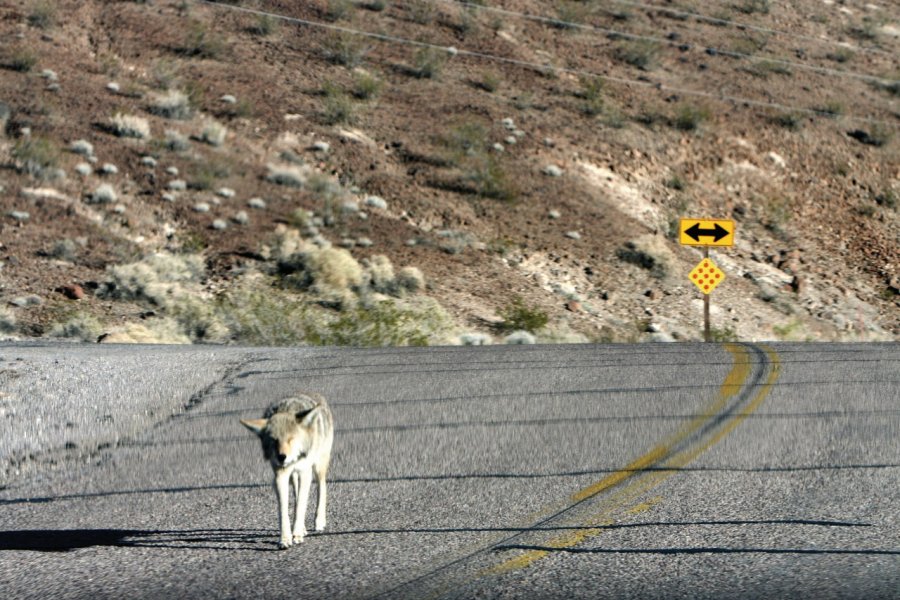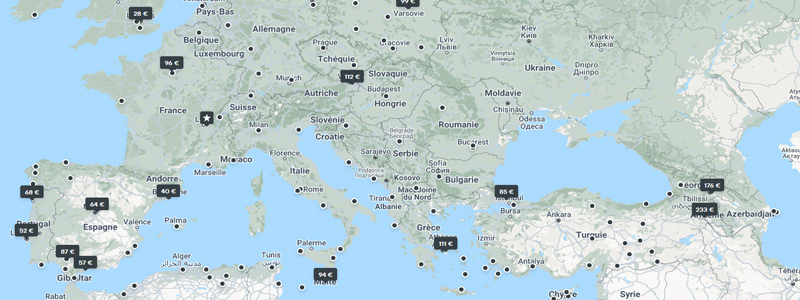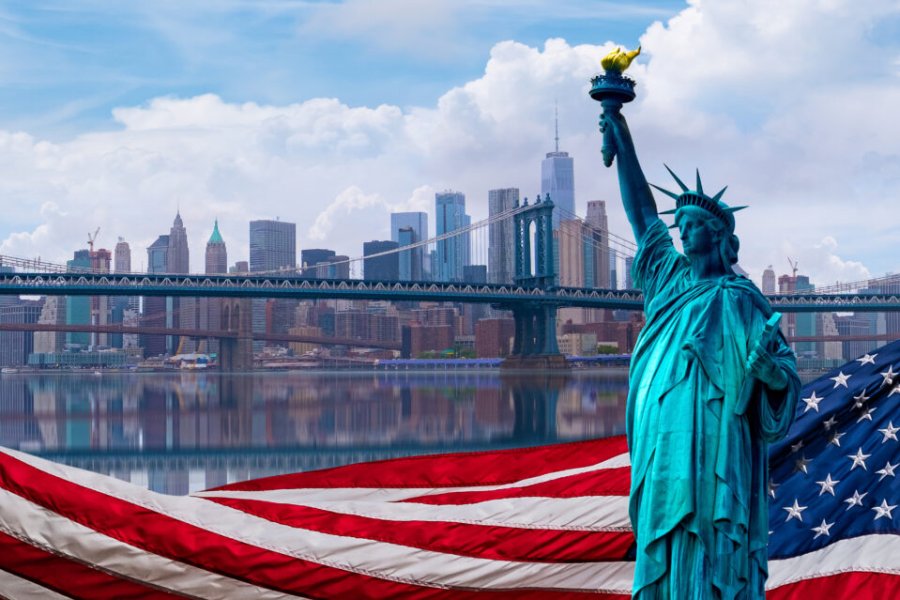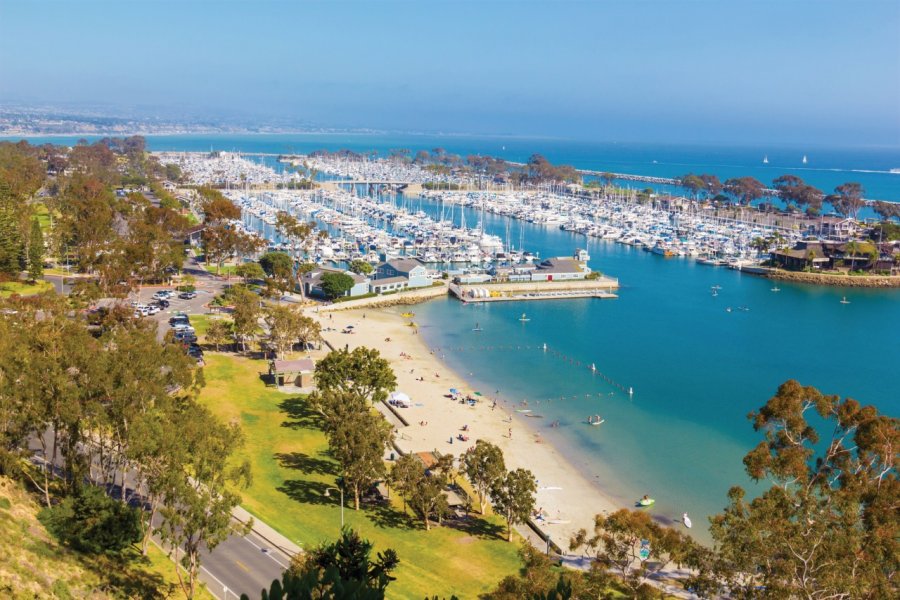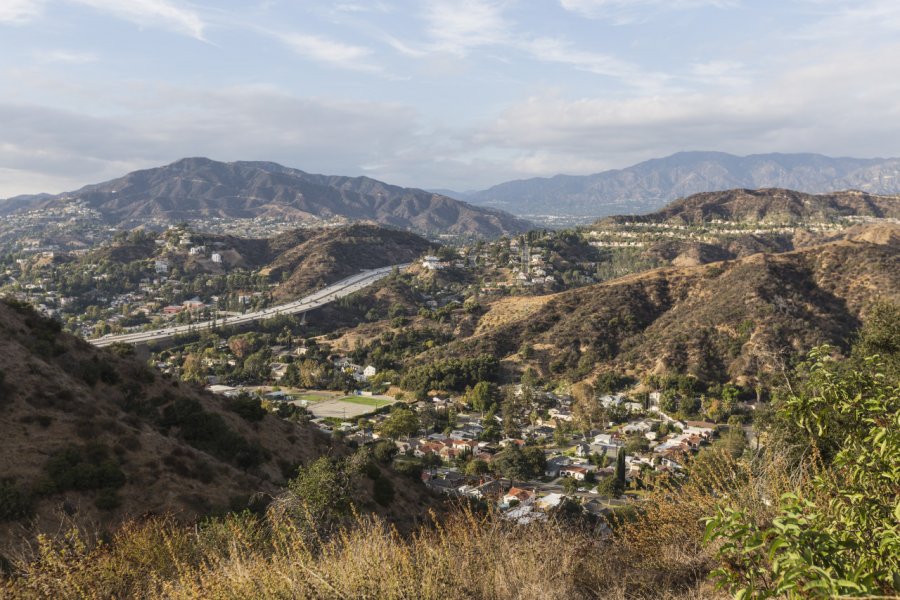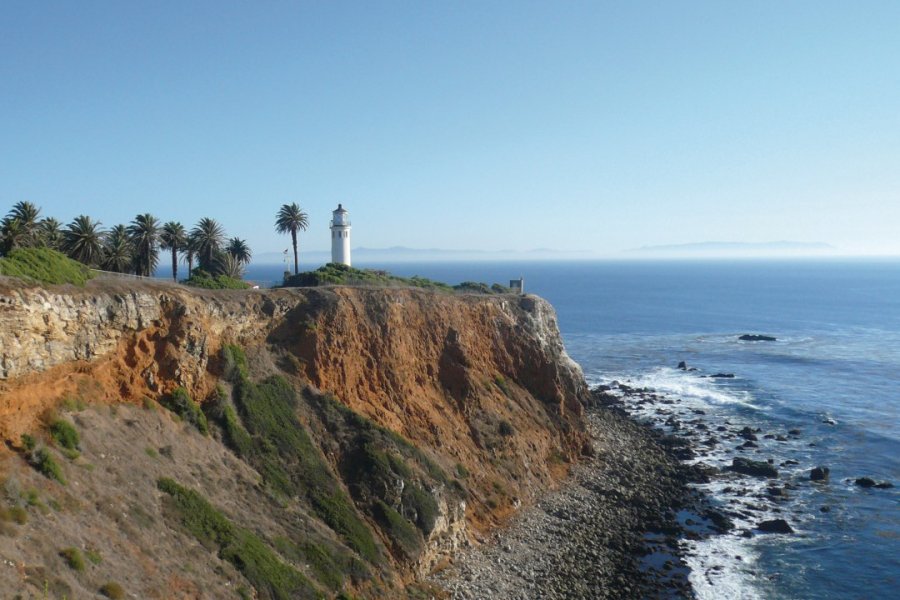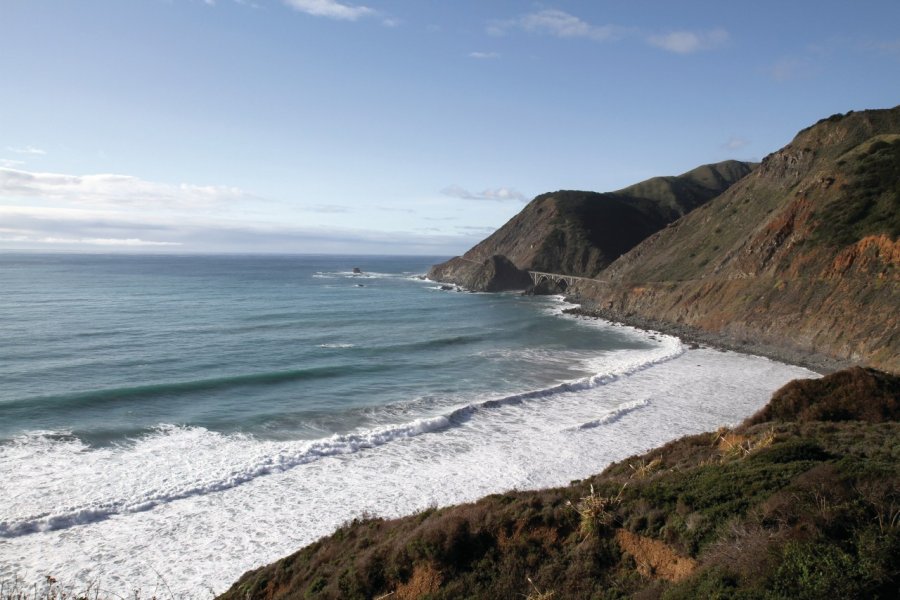Travel guide California
In the common imagination, a trip to California promises discovery, art and wide open spaces. By staying in this American state, you will approach the famous Californian dream, made of adventures, golden beaches and omnipresent sun. The first steps are made in its big cities, which have become mythical. San Francisco, the rebel, the European, the idealist; Los Angeles, the cinematographic, the excessive dreamer, the sunny; San Diego, the Hispanic, the authentic... Between these large urban spaces, we are willing to let ourselves be carried by a nature that is more than generous and incredibly contrasted. From the arid deserts, like Death Valley, to the great national parks and their real oxygen reserves, like Yosemite, passing by the Pacific coast, sometimes artistic and wild, sometimes glamorous and indomitable. California has an innate talent to offer happiness to all. Is it the sun? The vastness of the landscape? The vestiges of the 1849 gold rush? The myth of the great American West? The cinematography of Alcatraz and the Hollywood Hills? What is certain is that there is a wind of optimism and relaxation here. Flip through the pages of our California travel guide and quickly become Californian too...
What to see, what to do California?
-
Book an activity
-
Customized travel
- The most beautiful cities California
When to go California ?
Generally speaking, California is an ideal year-round destination, depending on what you want to see.
High season. Summer is the peak tourist season. During this time, the weather is generally warm and sunny all along the Pacific Coast. In the western mountains and plateaus, the climate is mild and the further south you go, the lower the rainfall. In the vast desert areas, such as Death Valley, the climate is dry for most of the year, with hot summers. Visiting these areas in the middle of summer is not recommended. Another very intense period is November and December. In the mountains as well as in the desert areas, winter is very cold, with heavy snowfalls, especially in the north. If you want to ski, opt for the end or the beginning of the year, when the Sierra Nevada is covered with snow. Elsewhere in California, the climate remains mild almost year-round. San Francisco, because of its bay, is an exception: precipitation is abundant, the wind is constant and the temperature is rather mild.
Mid-season. California's major cities, Los Angeles, San Francisco and San Diego, are visited year-round. The best time to visit California is in the off-season, in May or September. The temperatures are mild and the crowds are low. In the major national parks, visitors who fear crowds or heat waves should also opt for spring and early fall. Many of the major tourist attractions in the West still operate at a reduced rate, and hotels offer low-season rates through June (especially in the Sierra Nevada).
Low Season. From October to March, with the exception of the winter vacations, there are fewer tourists. This is a good time to negotiate prices for your hotels, especially outside the major cities.
Suggested addresses California
Travel California
-
Find a hotel
-
Car Rental
-
International e-SIM package
-
Find a local agency
...
Find unique holiday offers with our partners
How to go California
How to go alone
California is still very accessible for independent travelers, if you understand English. It's a friendly state, and the friendly locals are always willing to help you with your visits. If you plan to travel through the vast natural areas, you should consider renting a car; in the larger cities, public transportation will suffice.
How to go on a tour
Many operators offer tours that combine one or more major cities with a national park. Most of the time, the tours last between 10 days and two weeks and are done by bus. For example, you land in San Francisco, pass through Yosemite National Park, and finish your trip in Los Angeles or on one of the beautiful beaches of the Pacific coast.
How to get around
Domestic airlines are very busy and allow for quick travel from coast to coast. Most major western cities have a good city bus system. Outside of the major cities, public transportation is rarely convenient for travelers and does not serve outlying towns and suburbs well. The train is rarely the fastest, cheapest or most convenient option, but it does offer a scenic and comfortable way to travel. For a stay of less than three months: a French driver's license of more than one year is valid in all states. Note that in California, hitchhiking is legal.
Featured articles California
Discover California
At the heart of theAmerican Dream, California is renowned the world over for its dream factory: Hollywood. A veneer of glamour and glitter too often idealized, which reveals a much more complex, interesting and whole state. A land of migration, it was shaped by the gold rush of 1848, from which it has inherited a diverse population that today makes up its wealth. The Golden State is also renowned for being the cradle of America's LGBTQI+ community, a legacy it inherited from the 1967 Summer of Love. Nicknamed "The Parkland State", it boasts a rare natural beauty, between deserts, mountains and the Pacific coast. An exceptional environment that is suffering from climate change, undoubtedly the biggest issue now facing politicians. In short, we're going to present all the facets of a very special state, which has developed on the bangs of its country.
Pictures and images California
The 12 keywords California
1. Hippies
California is the cradle of the hippie counterculture. In search of new values, a whole generation rejected materialism, power struggles and the traditions of previous societies. It was in San Francisco that the flower children began to manifest their desire for peace, notably during the Summer of Love in 1967.
2. Hollywood

The imposing white letters that stand out from the hills of Los Angeles are known the world over: here, the visitor enters the land of cinema. From the Walk of Fame to the studios open to the public and the historic Art Deco theaters, the city is steeped in this sometimes heavy heritage, synonymous with clichés that are too simplistic.
3. Laid-back
This term, which is synonymous with "casual " or "cool ", is a good summary of the attitude adopted by most Californians, especially those in the South. It applies to dress code as well as to conduct and social interaction. More than just a word, it reveals a state of mind for which Californians are known in the rest of the country.
4. Melting pot
The Golden State has been populated by successive waves of immigration: today, its population is predominantly Latino, at 39 per cent - compared to 35 per cent white. While managing racial tensions remains one of the challenges facing the federal government, ethnic diversity is a tremendous engine for development.
5. National Parks
The American West is full of protected areas that have become models of organization and preservation of nature. If the first national park in the world was created in Wyoming, with Yellowstone National Park, California now has six of the most important, compared to five for Utah, three for Arizona and one for Nevada.
6. Nonsmoker
The country applies a virulent anti-smoking policy. Bans abound: in addition to the ban on smoking in most restaurants, bars and casinos, some cities also prohibit smoking in parks, on beaches and at bus stops. In total, 12.5% of Americans smoke compared to 24% of French people.
7. Road trip
In the kingdom of the car, the road trip takes on its full meaning. Pacific coast, beach towns, vineyards, deserts, forests, mountains, lakes... : with its vast expanses and its great diversity of landscapes, the American West is best explored when you are in a vehicle. Here the time spent on the road is an integral part of the experience.
8. Gold rush
An evocative myth, it is the founding event of California, demographically, economically and culturally. In less than 7 years, the discovery of a vein of gold in January 1848 at about 80 km east of the current Sacramento attracted 300 000 people from all the United States, China, Europe, Australia and South America.
9. Dryness
The region is frequently plagued by long periods of drought. Thus, water scarcity is a recurring problem in California, amplified more each year by climate change. Other consequences include devastating wildfires, unusual heat waves and the drying up of large lakes, such as Great Salt Lake in Utah.
10. Redwoods

Along with the pine, it is the tree most commonly found in California. There are two kinds: the coastal one - Sequoia sempervirens - and the mountain one - Sequoiadendron giganteum. Called "redwood " by the locals, the former is a relatively thin but giant tree, among the tallest in the world. A unique heritage, carefully preserved.
11. US Route 66

Built in 1926 to connect Chicago to Los Angeles, this legendary highway crosses Arizona for 645 km and California for 507 km. Although it officially disappeared from the U.S. highway system in 1985, many signs continue to indicate it, while it is lined with restaurants and motels in certain populated areas.
12. Universities
The Great West is home to several prestigious universities, among which Stanford - in California, south of San Francisco - stands out as a true incubator for Nobel Prize winners. In addition, the many campuses that populate the region energize the cities with museums, research sites and rich and varied cultural events.
You are from here, if...
You tip waiters, valet parking attendants and cab or VTC drivershandsomely. As part of the American culture, tips usually represent 10 to 15% of the bill in restaurants; it would be very bad form not to leave some.
You always ask "how are you?" to the person you are talking to, even in a quick exchange, such as at the checkout counter in a supermarket.
You don't obey speed limits, especially around major cities such as Los Angeles. However, just because the locals do it doesn't mean you should... They're not immune to traffic tickets or accidents, and neither are you!
You take care of your car. In the land of 4x4s, the vehicles are more imposing than the others; even the smallest ones compete in terms of maintenance, with generally impeccable bodies.
You give a "hug" instead of a kiss to greet an acquaintance.
Other destinations California
- Lake Tahoe
- Yosemite National Park
- San Francisco
- Los Angeles
- Death Valley National Park
- Mojave National Preserve
- Monterey
- Redwood National Park
- Big Sur
- Mammoth Lakes
- Half Moon Bay
- Sausalito
- Sequoia National Park
- Point Reyes National Seashore
- Point Lobos State Reserve
- Calistoga
- Marin Headlands
- Napa
- Carmel
- San Diego

